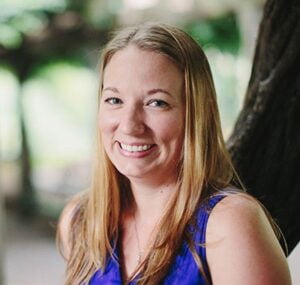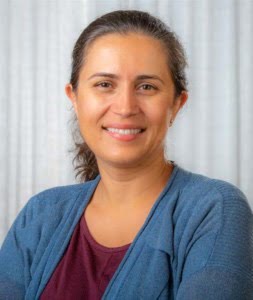Quest Montessori's Board of Directors
In its brief history, Quest has transitioned from a start-up organization to a structured, organized educational institution with a committed Board of Directors, an experienced Head of School, and well-trained, dedicated faculty and staff. The vision of the founding parents was to create an authentic Montessori school that serves the families of southern Rhode Island at a good value. The journey from 2001 until the present day has been quite remarkable and is a testimony to the passion of those involved with this undertaking to make this vision possible.
The Role of the Board
The Board of Directors is responsible for the financial health and strategic direction of Quest. The Board is responsible for hiring the Head of School who manages all the day-to-day operations of the school. The Board and Head of School work in partnership to develop Quest’s vision and strategic direction.
Under their governance model, the work of the Board falls into one of three areas of responsibility:
Fiduciary
Oversight on the current issues and situations that may impact the school’s ability to thrive in the future.
Strategic
Establish strategic direction for the school and evaluate data to inform action. This is a forward-looking mindset to determine how to avoid current issues in the future as well as to accomplish goals set by the Board.
Generative
Engages in big-picture thinking, meaning-making, brainstorming, and issue-framing that should precede any strategic thinking or planning.
Term of Office
All Directors shall serve for a two year term. Directors whose terms have expired may be elected to serve a consecutive term of two years, with a maximum limit of three consecutive terms. At the annual meeting, Directors whose terms have not yet expired shall elect by a majority vote, new members to fill vacancies on the Board. At no time shall a person be elected to the Board who is a faculty member or employee of Quest Montessori School.
Quest Strategic Plan
One of the primary roles of the Board of Directors, in conjunction with the Head of School, is to prepare and pursue a strategic plan for the school's ongoing development.
2020-2026 Quest Strategic Plan
If you have any questions regarding the Board of Directors or the Strategic Plan, you may contact the Board directly at [email protected].
Board Members

Emi Uchida is the Chair of the Quest Board and Chair of the DEIB Committee. Emi is a Professor in Environmental Economics at the University of Rhode Island. She teaches undergraduate and graduate courses and her research explores policies that can lead to environmental sustainability and poverty reduction. She holds a Bachelor of Science in Law from Keio University, Master of Environmental Management from Duke University and a Ph.D. in agricultural and resource economics from University of California, Davis. She and her husband Hiro live in Wakefield, RI and their son is a Quest graduate and her daughter is currently at Quest.

Kasey Diserens Morgan is the Vice Chair of the Quest Board. Kasey is a PhD candidate at the University of Pennsylvania. Her academic research as an anthropological archaeologist focuses on using community-based methods to understand how heritage is used in the context of an indigenous Maya community in Mexico. She has a masters degree in Historic Preservation from the University of Pennsylvania and a BA in Archaeology and Spanish from Cornell University. She does a lot of cooking and gardening in her spare time, and is particularly invested in her tomato plants. Kasey lives in Narragansett with her husband and two daughters, one at Quest.

Nick King serves as Treasurer of the Quest Board of Directors as well as the Chair of the Finance Committee. Nick has been a member of the Quest Community since 2017. He founded Bristolite Real Estate, a commercial/industrial real estate holding, development and management company with his business partner in 2005. Additionally, he serves as Vice President of Bristol Marine Holdings, overseeing operations of three waterfront marine service operations. He is also licensed as a commercial real estate broker in Rhode Island and Massachusetts. Nick graduated with a Bachelor of Science degree in Mechanical Engineering from the University of Rochester. He lives with his wife, Carolina, son and daughter in Portsmouth, Rhode Island.

Charlie Hamilton serves as Secretary of the Quest Board and Chair of the Development Committee. A graduate of both Salve Regina University and Johnson and Wales University, he has worked in the culinary world for the past 15 years in Rhode Island and Miami, FL in positions ranging from Executive Chef to owning and operating a food truck. Recently he has shifted into philanthropic work, sitting on multiple boards, including the Hamilton Family Charitable Trust, which supports K through 12 literacy-based programs. He and his wife, Kerin, live in Middletown with their four children, one at Quest.

Taylor Dean is an attorney who focuses her practice on labor and employment law, criminal defense law, and general commercial law. Taylor previously worked for an international law firm in its New York and London offices, where she represented clients in complex commercial litigation and criminal matters in state and federal court, as well as in multi-jurisdictional investigations by the U.S. Department of Justice, the U.S. Securities and Exchange Commission, the Manhattan District Attorney’s Office, and the U.K.’s Serious Fraud Office.
Taylor graduated from New York University and Fordham University School of Law, cum laude, as a Ruth Whitehead Whaley Scholar and recipient of the Archibald R. Murray Public Service Award.
She has been a member of the Quest Community since 2023.

Deborah (Debby) King has spent her career advocating for women and workers rights and fighting for policies which support the ability to both work and provide excellent care for our families.
She started organizing women workers on a summer job while still a student at The New York State School of Industrial and Labor Relations, Cornell University and after graduation worked for several unions beginning a long career in the labor movement, primarily with 1199SEIU, the Healthcare Workers Union. As an elected union officer in Connecticut she led a pay equity campaign which won millions of dollars in wage increases for women working for the State of Connecticut and later as Executive Vice President for Collective Bargaining in New York negotiated the first childcare fund in the United States. Working with other unions and advocates she helped lead the effort to win Paid Family and Medical Leave which was enacted in New York in 2018. Debby also served as Executive Director of the 1199SEIU Training and Employment Funds which provided tuition, salary replacement and health benefits to workers in clerical and service positions studying to become nurses and enter other healthcare professions. In recent years she helped bring training programs to SEIU members in 13 other States. Debby also served as an adjunct professor for the Cornell labor program in NYC for over 20 years. Since retiring Debby has worked as the Senior advisor for the National Domestic Workers Alliance. Debby lives in Newport with her husband Liam. They are the parents of fellow Board member Nick King and the proud grandparents of Quest students Mia and Santiago King.

Melanie Lawhead is a member of the Quest Board and taught Spanish at the Exeter-West Greenwich Junior High for 15 years. In 2017, she switched to their elementary school, Metcalf, to start their Foreign Language in the Elementary School (FLES) program. She earned a BS in Secondary Education with a concentration in Spanish from the University of Rhode Island as well as an MA in Spanish from Middlebury College. She resides in Narragansett with her husband and daughter, who is a Quest graduate.

Joline Macfarlan is a member of the Quest Board and is a family physician, caring for children and adults at Thundermist Health Center in Wakefield. She is a South County native and a graduate of the University of Rhode Island with a Bachelor of Science in Biology and a Spanish minor. She also attended the Boston University School of Medicine. Joline lives in Narragansett with her husband J.A. and their two children, who are delighted to be students at Quest.

Dr. William Martin Jr. is a member of the Quest Board and the Diversity, Equity, Inclusion & Belonging Committee. He holds a Bachelor’s in Mechanical Engineering from The George Washington University and a Master’s and Doctorate degree in Mechanical Engineering from the North Carolina Agricultural and Technical State University as a Ronald E. McNair NASA Fellow. He currently works with the Naval Undersea Warfare Center (NUWC) Division Newport’s Advanced Acoustic Systems Division, Environmental and Target Physics Branch (now called the Sensor Technology and Target Physics Branch). Through the NUWC part-time degree program, William earned a distance learning Master’s Degree in Engineering Acoustics from the Naval Postgraduate School in Monterey CA in 2017. William lives in Middletown with his wife, Maureen and daughter who is a student at Quest.

Liz Raposa has been a part of the Quest community since 2016. She completed her Bachelor of Science in Nursing at the University of Rhode Island, her Master of Science in Nursing with a concentration as an Acute Care Nurse Practitioner at the University of Massachusetts in Worcester, and her Doctor of Nursing Practice in Educational Leadership from the American Sentinel University in Aurora, Colorado. Liz has worked in many different hospital systems across Rhode Island, Massachusetts, and Connecticut as a Nurse Practitioner in the inpatient setting, with a specialty in cardiology and cardiothoracic surgical critical care. Liz has also worked in higher education as a faculty member in the nursing department at the New England Institute of Technology since 2014 and has served as the Department Chair and Director of Nursing since 2022. Liz lives in Charlestown with her husband Frank and 3 children, two current and one future Quest students.

Dana Rosati (she/her) is a member of the Quest Board and the Governance Committee. She is a global operations and human resources professional, with a particular focus on global policy development and compliance, global governance, and strategic recruitment in the nonprofit and INGO sector. Dana has been with The Hunger Project, an INGO based in New York City, since 2018, where she is the Senior Officer of Global Operations and Human Resources. Prior to joining The Hunger Project, Dana worked with various community-based and animal welfare nonprofits in New York City and in the Dancewear industry.
Dana holds a M.S. in Nonprofit Management from the Milano School of International Affairs, Management, and Urban Policy at The New School and a B.S. in Textiles, Marketing, and Design from the University of Rhode Island.
Dana has two young children, one of whom is a current student at Quest.

Guy Shaffer is a member of the Quest Board and an independent business consultant. He advises on go-to-market strategies for companies looking to enter the US and Central American markets, and in the mobile hospitality industry. Formerly, Guy was a Global IT and CX Lead for Novartis Institutes for Biomedical Research, based in Cambridge MA and Basel Switzerland, leading teams across the US, Europe and Asia. He also sat on their DEI council. Prior to Novartis, Guy was a sales leader at Moo.com, and at Apple Inc. He earned his BA at University of Rhode Island and attended RISD and Cornell University to add skills in deign and DEI, respectively. Guy lives in North Kingstown with his wife Vanessa and their two children, one at Quest.

Amy Weinberger is a member of the Quest Board and serves on the Finance and Development Committees. Amy currently manages a fuels distribution facility in East Providence. She has extensive experience in operational risk management, primarily focused on safety, health, environment, and security risk in the energy industry. Amy holds a Bachelor of Science in Civil & Environmental Engineering from Clarkson University and a Master of Science in Fire Protection Engineering from the University of Maryland. Amy and her husband Joe live in Texas with their two daughters, who are both former Quest students.
